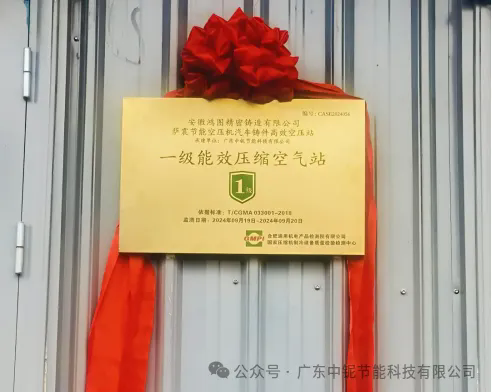Experience in solving common faults of air compressors
Release time:2024/12/17 Click :
As an experienced driver of air compressor maintenance, I have developed my own set of coping methods when facing various faults of the air compressor.
Once, an air compressor suddenly failed to start. I first calmly checked the power supply and found that the voltage was normal, but there were slight signs of the fuse melting. After replacing the fuse, the air compressor still cannot start. So I turned my gaze to the control circuit of the motor and carefully checked every relay and contactor. After some investigation, I found that the contacts of a contactor were stuck due to prolonged use, causing the circuit to not conduct properly. After replacing this contactor, the air compressor started smoothly. This experience made me understand that when dealing with an inability to start fault, it is necessary to gradually investigate from multiple aspects such as power supply, control circuit, and motor, and not miss any possible doubts.
Abnormal pressure of the air compressor is also a common malfunction. Once, when the pressure of an air compressor was too high, I first checked the set value of the pressure switch and found no abnormalities. Then I checked the safety valve and found that it was blocked by some impurities, which prevented it from releasing pressure normally. After cleaning the safety valve, the pressure returned to normal. For situations where the pressure is too low, I usually check if the intake filter is clogged first, as this is a common cause of insufficient intake and low pressure. If the intake filter is normal, I will further check whether there are any leaks inside the compressor, such as poor sealing of the piston ring or leaks at the pipeline connections. Through these meticulous inspections and repairs, I can always restore the pressure of the air compressor to the normal range.
Excessive noise from air compressors is also a tricky problem. When encountering such situations, I will first rely on experience to determine the source of the noise. If it is a sharp metal friction sound, it is likely that the bearing is damaged. I will disassemble the air compressor, check the wear of the bearings, and replace them in a timely manner. If it is a dull buzzing sound, it may be caused by loose installation of the air compressor or pipeline resonance. I will check if the anchor bolts are loose, reinforce or adjust the layout of the pipeline to eliminate resonance. In the process of solving these faults, I have continuously accumulated experience, improved my maintenance skills, and deeply realized that air compressor maintenance requires not only technology, but also keen observation of details and accurate judgment of problems.
Once, an air compressor suddenly failed to start. I first calmly checked the power supply and found that the voltage was normal, but there were slight signs of the fuse melting. After replacing the fuse, the air compressor still cannot start. So I turned my gaze to the control circuit of the motor and carefully checked every relay and contactor. After some investigation, I found that the contacts of a contactor were stuck due to prolonged use, causing the circuit to not conduct properly. After replacing this contactor, the air compressor started smoothly. This experience made me understand that when dealing with an inability to start fault, it is necessary to gradually investigate from multiple aspects such as power supply, control circuit, and motor, and not miss any possible doubts.
Abnormal pressure of the air compressor is also a common malfunction. Once, when the pressure of an air compressor was too high, I first checked the set value of the pressure switch and found no abnormalities. Then I checked the safety valve and found that it was blocked by some impurities, which prevented it from releasing pressure normally. After cleaning the safety valve, the pressure returned to normal. For situations where the pressure is too low, I usually check if the intake filter is clogged first, as this is a common cause of insufficient intake and low pressure. If the intake filter is normal, I will further check whether there are any leaks inside the compressor, such as poor sealing of the piston ring or leaks at the pipeline connections. Through these meticulous inspections and repairs, I can always restore the pressure of the air compressor to the normal range.
Excessive noise from air compressors is also a tricky problem. When encountering such situations, I will first rely on experience to determine the source of the noise. If it is a sharp metal friction sound, it is likely that the bearing is damaged. I will disassemble the air compressor, check the wear of the bearings, and replace them in a timely manner. If it is a dull buzzing sound, it may be caused by loose installation of the air compressor or pipeline resonance. I will check if the anchor bolts are loose, reinforce or adjust the layout of the pipeline to eliminate resonance. In the process of solving these faults, I have continuously accumulated experience, improved my maintenance skills, and deeply realized that air compressor maintenance requires not only technology, but also keen observation of details and accurate judgment of problems.
- ∧



.jpeg)




.jpeg)
.jpeg)


